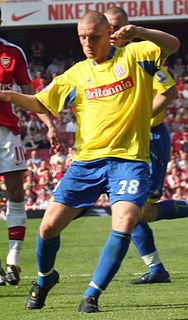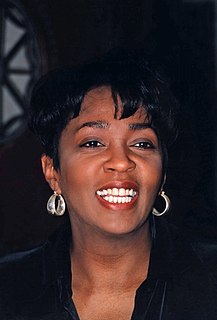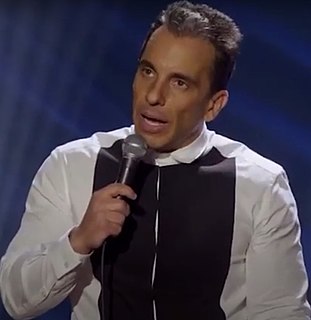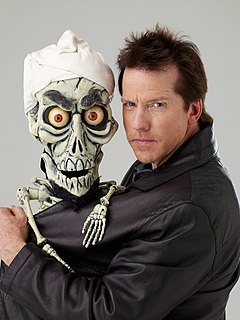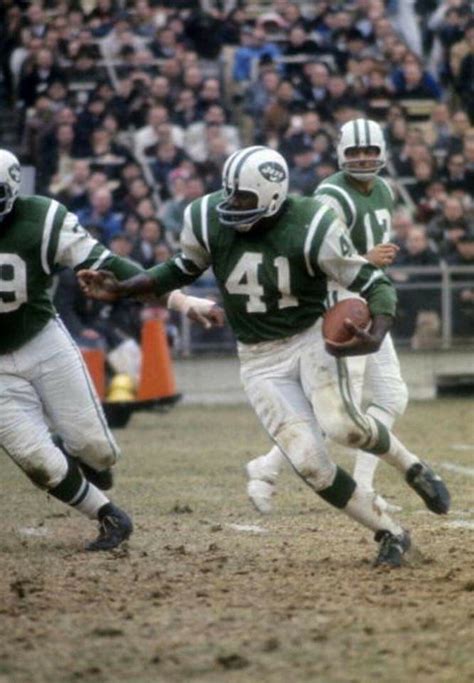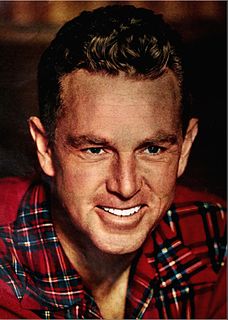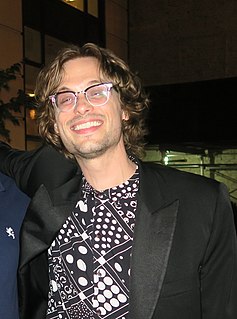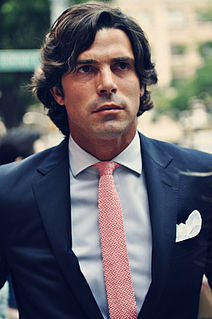A Quote by Andy Wilkinson
We singer-songwriter people, we're used to getting up and doing our own thing in front of people, and we're it. We're the band, artist, writer, producer, front man. We're the whole thing. You develop, it's not smugness, but this self-reliance, that can limit your creativity. When you're willing and able to invite others into it, you wind up getting a piece of work that's bigger and better than anything you ever imagined it could be.
Quote Topics
Related Quotes
The biggest mistake I made was not having a full-time producer. I was securing locations and wardrobe and making sure people get called to show up on time and getting the film to the lab and getting the camera, and all this stuff that I'm happy to do, but if I'm doing every little thing, I'm not concentrating on my story. So it never gets any better than the script.
My mom was a sub teacher her whole life. My aunt was a teacher her whole life. So that wasn't hard to do. Performing in front of people started when I was a child. My mom ran a theatre. So we were around it. Getting up in front of people has never been an issue. So I think once you get over that part of it, I'm happy to teach anybody anything.
When I was a kid and getting paid to stand in front of a camera. I used to spend a lot of my time just laughing inside about the whole thing. It wasn't real to me. I couldn't act and I damn well knew it. I kept expecting someone to see the joke and call the whole thing off at any moment. Fortunately, no one ever did.
Early on I was a lot more unsure of myself on stage. When our band The Decemberists was getting bigger audiences I was more concerned about alienating them, so I wasn't as willing to take risks and do weird stuff on stage. But once you get more accustomed to it you tend to have more fun with it and not worry about being pilloried for acting out. Whenever you play in front of 400 or 500 more people than you're used to it's always a weird, transitional period.
Once you are shooting a movie, even if it's your own script, you have to let it go at a certain point. That's true for every film. It breaks up into phases where the thing that you have in front of you is the thing you have to address, and you can't worry about what you imagined a scene was going to like and that it came out differently, because that's what you have to make work.
CBGB was a wild place, ... The first time I ever played there was in 1987, I think, with my hardcore band, Scream. And I remember the craziest [thing] about that club was you could be in
front of the stage and it could be louder than any show you've ever been to in your life. But if you were towards the back of the club at the bar, you could sit and have a conversation with
someone. It was the weirdest thing to me.
A writer's job is not complete without attention to precision. What you're trying to be precise about is your relationship to the observed thing. And "observed thing" could include remembered thing, fantasized thing, fictionalized thing, recorded thing, trans-altered thing. It's the model that's in front of you or in your brain or your memory or whatever. So you're trying to be precise about what it is you're seeing because it's very unlikely that you're going to be able to depict it as it is.
Your only guidepost is your own instinct and judicious editing. In my stand-up act I learned that in the first 10 minutes I could say anything and it would get a laugh. Then I'd better deliver. In the movie it's the same thing. You get a lot of laughs when people first sit down and then the story better kick in. Many years in front of an audience, I would hope, give me a sense of what works.
In the beggining of I was getting all this feedback from people saying, "What are you doing? What is this?" But I thought to myself, "This is a great opportunity. This is a perfect bridge to help me achieve my dream and my vision of polo becoming a bigger, more visible sport." So I used the money that I was getting from modeling to buy better horses and to become a better player. So I really believed that if I could elevate my game and show that I was serious about it, then the work I was doing with Ralph Lauren would become that bridge that I was looking for to take the sport further.
